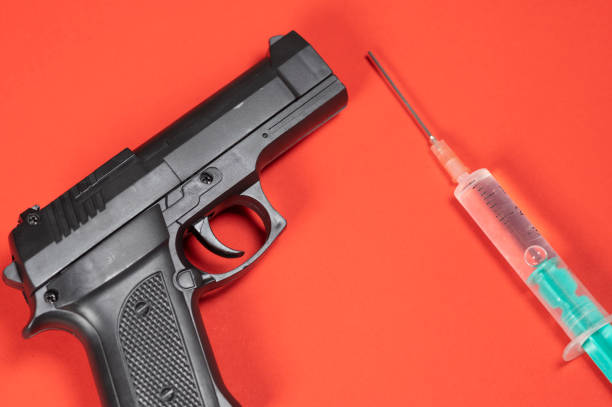
Wednesday’s mass shooting at a Tulsa hospital campus marks the 233rd mass shooting in the U.S. this year.
The incident and the slew of other gun violence tragedies that preceded it this year have once again reignited passions surrounding the country’s decades-long debate over gun policy. The devastating events have also resurfaced the question: Should gun violence be treated as a public health issue?
The answer is yes, according to Kaiser Permanente. On May 29, the Oakland-based health system said it is establishing a gun violence research center. The announcement came five days after 19 children and two teachers were killed in a mass shooting at Robb Elementary School in Uvalde, Texas. And three days before a patient killed his back surgeon in Oklahoma.
The center will focus on preventing gun violence through care innovation and education. It will also support research to better understand the causes of and interventions for gun-related injuries.
Kaiser Permanente is seeking to partner with other health systems, public health authorities, community organizations and businesses to address the country’s gun violence problem. The health system said the issue is a public health crisis that needs to be addressed in order to pursue a healthier future.
The center is not Kaiser Permante’s first effort to advance gun violence research. In 2018, the health system funneled $2 million into internal gun violence research, which led to three 24-month clinical studies on firearm injuries. The investment was made after the health system discovered its physicians treated more than 11,000 gunshot wounds between 2016 and 2017.
In addition to treating patients who have suffered violent attacks, healthcare workers sometimes find themselves the victim of these crimes, as was the case in Tulsa at Saint Francis Health System. On Wednesday, four of the health system’s employees were killed in that attack. One of the victims was a physician the shooter blamed for pain he experienced after a back surgery.
Given the mounting scourge of gun violence, providers are speaking out more forcefully. In an opinion piece published May 16 in The Philadelphia Inquirer, a Johns Hopkins trauma surgeon who is a survivor of gun violence, a Northwell Health emergency medicine physician, and a student at Thomas Jefferson University’s medical school called for more action to protect healthcare workers from violence. They pointed out that there are no federal policies requiring hospitals to implement gun violence prevention plans. In fact, laws protecting healthcare providers from violence exist in only 26 states.
The authors argue improvements can be made by financially incentivizing facility-based protections, such as panic buttons and metal detectors. They also advocated for more gun violence prevention research and medical record warnings that flag patients with a history of being aggressive. In 2021, the CDC began funding gun violence research after a nearly 25-year pause mandated by Congress.
Meanwhile, on Thursday, National Nurses United, the country’s largest professional association for registered nurses, proclaimed its support for the Workplace Violence Prevention for Health Care and Social Service Workers Act. The legislation, currently in the Senate, would mandate that all healthcare and social service employers implement a comprehensive workplace violence prevention plan.
Both the requirements laid out in the Workplace Violence bill and the recommendations suggested in the op-ed focus on what can be done to protect workers inside the four walls of a hospital. However, what happens outside also affects doctors and nurses forced to treat gun shot victims who always don’t make it.
As clinicians have joined in the chorus advocating for gun reform, they have become targets of the National Rifle Association, the foremost proponent of easing regulations surrounding guns.
In 2018, the NRA released the following tweet in response to healthcare workers’ increased gun reform advocacy:
Someone should tell self-important anti-gun doctors to stay in their lane. Half of the articles in Annals of Internal Medicine are pushing for gun control. Most upsetting, however, the medical community seems to have consulted NO ONE but themselves. https://t.co/oCR3uiLtS7
— NRA (@NRA) November 7, 2018
Dr. Joseph Sakran, the Johns Hopkins trauma surgeon who later co-authored the opinion piece published in The Philadelphia Inquirer, responded as such:
As a Trauma Surgeon and survivor of #GunViolence I cannot believe the audacity of the @NRA to make such a divisive statement.
We take care of these patients everyday. Where are you when I’m having to tell all those families their loved one has died. @DocsDemand #Docs4GunSense https://t.co/XrY1G3hIi2
— Joseph Sakran (@JosephSakran) November 7, 2018
Shortly after the exchange, Dr. Sakran and a group of other activists created the #ThisIsOurLane campaign, which asserts that healthcare workers should play an active role in addressing the nation’s gun violence crisis.
Since The @NRA is incapable of understanding the important role we the medical community have in this fight against #GunViolence, we have created this handle just for you! @JosephSakran @DocsDemand @choo_ek @shannonrwatts @davidhogg111 @fred_guttenberg @Emma4Change #ThisIsOurLane https://t.co/C8jDG6qO8k
— ThisIsOurLane (@ThisIsOurLane) November 11, 2018
Only time will tell whether inflamed passions after a heart-wrenching shooting will translate to amending federal gun law. But one thing is clear: there are more voices characterizing gun violence and its impact on citizens — be they healthcare workers or not — as a major public health crisis.
As Dr. Sakran puts it, gun violence is “the most important public health problem of our time.”
Photo: Aitor Diago, Getty Images










